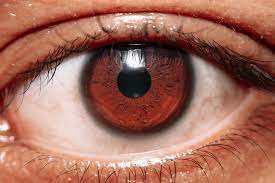 Glaucoma is a progressive eye disease that damages the optic nerve, leading to vision loss if left untreated.
Glaucoma is a progressive eye disease that damages the optic nerve, leading to vision loss if left untreated.
[ad]
Often referred to as the “silent thief of sight,” glaucoma is characterized by increased intraocular pressure (IOP), causing irreversible damage to the optic nerve fibers.
This essay aims to provide an in-depth understanding of glaucoma and offer practical tips for managing the condition effectively, including the role of nutrition in preventing eye problems.
Understanding Glaucoma:
Glaucoma typically develops when the fluid inside the eye, known as aqueous humor, does not drain properly, resulting in increased IOP. The two primary types of glaucoma are open-angle glaucoma, which progresses slowly over time, and angle-closure glaucoma, which can be sudden and acute. Some key points to understand about glaucoma include:
- Early stages of glaucoma may be asymptomatic, making regular eye exams crucial for early detection.
- Risk factors for glaucoma include age, family history, elevated IOP, and certain medical conditions like diabetes and hypertension.
- Timely treatment and adherence to prescribed therapies are essential to slow the progression of glaucoma and prevent further vision loss.
Managing Glaucoma Effectively:
Regular Eye Exams:
Scheduling regular comprehensive eye exams is vital, especially if you are at a higher risk for glaucoma. These exams involve measuring IOP, assessing the optic nerve, and conducting visual field tests to detect any signs of glaucoma.
Adherence to Medications:
If diagnosed with glaucoma, it is crucial to follow the prescribed treatment plan, which often includes eye drops, oral medications, or a combination of both. These medications work to lower IOP and slow down the progression of the disease. It is essential to use the medications as directed by your ophthalmologist and report any side effects or concerns promptly.
Surgical Interventions:
In some cases, medication alone may not be sufficient to manage glaucoma effectively. Surgical interventions, such as laser trabeculoplasty or conventional surgery like trabeculectomy, can help improve drainage and regulate IOP.
Lifestyle Modifications:
Certain lifestyle choices can influence the progression of glaucoma:
- a) Exercise regularly: Engaging in moderate aerobic exercise, with your doctor’s approval, can help maintain overall health, including eye health.
- b) Avoid smoking: Smoking can increase the risk and progression of glaucoma. Quitting smoking can significantly benefit your eye health.
- c) Limit caffeine intake: High levels of caffeine can briefly increase IOP. Moderating your caffeine consumption may be beneficial for managing glaucoma.
Nutrition and Eye Health:
In Nigeria, there are several local foods that are rich in nutrients beneficial for eye health and may help improve eyesight. Including these foods in your diet can provide essential vitamins, minerals, and antioxidants that support optimal eye function. Here are some local Nigerian foods known for their eye health benefits:
Spinach and Other Leafy Greens:
Leafy greens like spinach, ugu (pumpkin leaves), and bitter leaf are excellent sources of lutein and zeaxanthin, two antioxidants that promote eye health. These nutrients help protect the eyes from harmful ultraviolet (UV) radiation and oxidative stress, reducing the risk of age-related macular degeneration (AMD) and cataracts.
Red Palm Oil:
Red palm oil, commonly used in Nigerian cuisine, contains high levels of beta-carotene, a precursor to vitamin A. Vitamin A is essential for maintaining good vision and preventing night blindness. Incorporate red palm oil in your cooking to benefit from its eye-protective properties.
Oranges and Citrus Fruits:
Oranges, tangerines, and other citrus fruits are rich in vitamin C, an antioxidant that helps strengthen blood vessels in the eyes and reduce the risk of cataracts. These fruits also provide hydration, promoting overall eye health.
Carrots and Sweet Potatoes:
Carrots and sweet potatoes are packed with beta-carotene, which the body converts into vitamin A. Vitamin A is crucial for maintaining clear vision, supporting the health of the cornea, and preventing dry eyes. Including these root vegetables in your diet can contribute to improved eyesight.
Moringa:
Moringa leaves, commonly known as “ewé igiiyan” or “zogale” in Nigeria, are highly nutritious and contain several eye-beneficial nutrients. Moringa leaves are rich in vitamin C, vitamin E, beta-carotene, and antioxidants, which can help protect the eyes from damage caused by free radicals.
Fish:
Nigeria’s coastal regions provide a variety of fish that are rich in omega-3 fatty acids. Omega-3 fatty acids, found in fish like mackerel, salmon, and sardines, have been linked to a reduced risk of eye conditions such as dry eyes, macular degeneration, and glaucoma. Including fish in your diet can provide essential nutrients that support overall eye health.
Peppers:
Peppers, such as bell peppers and scotch bonnet peppers, are excellent sources of vitamin C and antioxidants. Vitamin C plays a crucial role in maintaining the health of blood vessels in the eyes and reducing the risk of cataracts. Additionally, the antioxidants present in peppers help protect the eyes from oxidative stress.
It’s important to note that while these foods are beneficial for eye health, they should be part of a well-balanced diet. Additionally, if you have specific eye concerns or conditions, it is recommended to consult with an eye care professional for personalized advice and treatment.
[ad unit=2]








